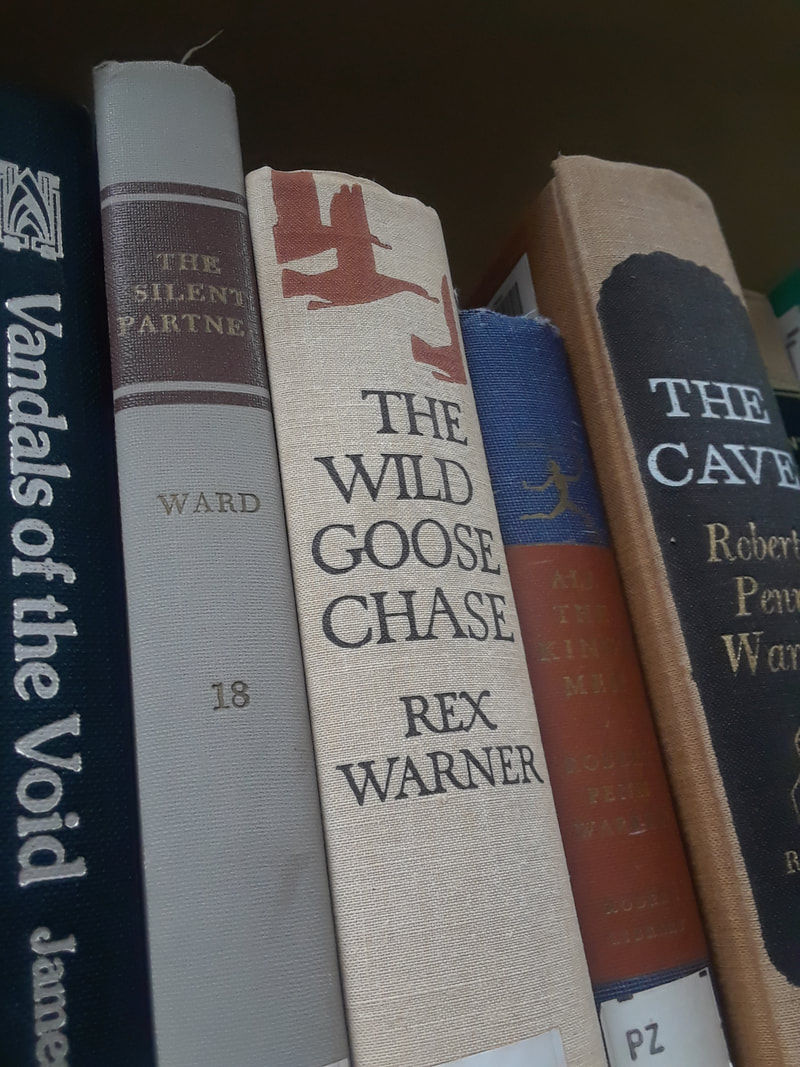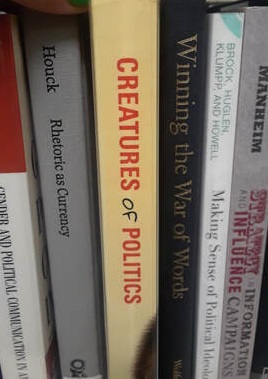Unconventional Reading Habits II
I hate sounding like a pedant. I really don’t think I know anything, and I hope this never changes.
That said, the objective of this blog is to provide a place for the sharing of ideas, without judgment and without trying to live up to any expectations.
I am going to advance my thoughts on Unconventional Reading Habits (see Part 1 for more background) with some tips for reading meditatively, for pleasure and for catharsis of some sort. However, I will definitely diverge from this subject.
Please don’t judge me for my imprecise language sometimes. Imprecision is a way to capture what cannot be said and allow it to hang unceremoniously off of what can. It’s better than tossing out ideas that don’t have good words for them yet. Wordless ideas are what good ideas and truly new ideas live in (this is purely logical deduction).
These tips are written for every sort of reader, writer, and editor.
To read like a writer, read twice, four times, continually.
The most cultivated writers I know are in the practice of reading texts twice, sometimes more. This doesn't’t mean you must read everything twice. Just like pacing, reading frequency is something that arises from reading style.
In general, reading a text a second time is most enriching if you allow yourself a space of time after the first read. By this, you can tune into different details and aspects of the text the second time around.
 Also, the controlled variable is the book, so you can perceive how the variable of you the reader might have changed from the first read to the second. This is especially important when you are a writer because you are in the business of breaking into your psyche more and more, so that you can learn how to break into the collective psyche. If you are able to break into the collective psyche, you can help listeners/ readers of your work do the same. The words you put out there are more than just fiction, they are the silent waves of what can be.
Also, the controlled variable is the book, so you can perceive how the variable of you the reader might have changed from the first read to the second. This is especially important when you are a writer because you are in the business of breaking into your psyche more and more, so that you can learn how to break into the collective psyche. If you are able to break into the collective psyche, you can help listeners/ readers of your work do the same. The words you put out there are more than just fiction, they are the silent waves of what can be.
I know that "breaking into the collective psyche" sounds a bit violent, but great art is often violent, in a way. Personally, I prefer my poetry to be somewhat assaulting in its affect. I have explained this desire to other writing friends by remarking that I never want my writing to peeter out or extinguish, in a way, by its end. Writing should inculcate something in a listener/ reader that is inextinguishable. And some of the greatest works of art I have encountered have been so discordantly beautiful that they make me sick to my stomach (figuratively speaking).
Double-reading a text is also exploratory; there are a lot of books that are just so mesmerizing and mystifying that a second read is just a way to eat more of what the book has to offer, as though the meal is never ending.
Really, it is fruitful to read any book more than once. The only requisite is that you believe in there being more than what meets they eye to the "meaning" of literature. In a way, the pleasure of literature is one of the most immaterial qualities in this life that you will interact with. Because as I said, books will always have more to offer... if you simply believe that they have more to offer.
Travel lightly as a reader: relinquish absolutes.
But wait, you might say, if a "belief" in there always being more to literature's meaning is so important, is there really any fundamental value or truth to "meaning" or theme in literature? If no interpretation ever closes the case, so to speak, can the case be closed? If not, is interpretation a waste of time? Is interpreting literature just making stuff up? I think that this is the perspective folks that don't appreciate literature/ art tend to have: there's no point to most art, it can be interpreted in literally any way, art is mostly stupid.
 But as a lover of art and literature, I want to say that interpreting literature does indeed require you to "make stuff up", and this is not a flaw; when you interpret literature, you speak on what it means to you and the world. There is no other you, so there is no other you+the world. The intermingling of the you--your history and mind-- with the everything-other of your culture and environment is so rare and single. In honoring it while interpreting and reacting to art, you are manifesting something completely onerous.
But as a lover of art and literature, I want to say that interpreting literature does indeed require you to "make stuff up", and this is not a flaw; when you interpret literature, you speak on what it means to you and the world. There is no other you, so there is no other you+the world. The intermingling of the you--your history and mind-- with the everything-other of your culture and environment is so rare and single. In honoring it while interpreting and reacting to art, you are manifesting something completely onerous.
Great art, great literature and an appreciation of it allows you to wield tremendous power,... because you position your interpretation as a predicate for future interpretations and thoughts. When you put your interpretation into the world, or at least carry it in your mind, you shape your reality. You also change the world for the people that come after you, either by sharing your thoughts or by interacting with the world. The power you have as a carrier/ sharer of thoughts is so great, its precise effects will never be completely knowable to us.
Don't be afraid.
Whatever you do, don’t misconstrue great and unfathomable literature as formidable and exasperating.
Really, "greatness" and "formidability" are reactions to the same silhouette. The nuanced differences in these words, the wonderment versus a sense of danger, are accounted for and set by the reader's emotions. The same is true for "unfathomability" and "exasperation". But also here, "exasperation" is a reaction borne from hopelessness and inability. That is why developing a sense of "will" is such a critical precondition to reading with pleasure.
 Meaning is not just about vocabulary or sentence structure comprehension. Meaning is the willingness to allow for a resonance to take place between the words on paper and one’s angle of perception. Sometimes, it takes more than one attempt to feel for an understanding of a text, especially when the text is of an unfamiliar style or viewpoint. But there are no bad readers, just unwilling readers.
Meaning is not just about vocabulary or sentence structure comprehension. Meaning is the willingness to allow for a resonance to take place between the words on paper and one’s angle of perception. Sometimes, it takes more than one attempt to feel for an understanding of a text, especially when the text is of an unfamiliar style or viewpoint. But there are no bad readers, just unwilling readers.
It may be confusing to think that one’s inability to like or understand a text is because of “unwillingness”. Such implies that one is choosing to dislike/misunderstand, and this is clearly not so. But I believe that “unwilling” is a useful word because it reminds me that there is an ability we carry to like and understand all, but we haven’t yet become aware of it and we don't know how to perfectly understand and employ it.
Trusting in “will” is nothing but an acknowledgement of the limitlessness of what can be... even if we will never fully realize or feel that limitlessness. We are not limitless beings ourselves-- we are creatures, built by nature and reparable. We are motile and growing but never fully convalescent with limitlessness. And this a good thing, because if we were fully whole and limitless ourselves, there would be nothing to change, nothing to go from here to there, no vantage point. Art would be a cold, dead symbol, instead of the liveliness it is today.
Didn’t I say I would diverge.
I am not an expert at reading. I have my days where I cannot read a single word because my brain just won't cooperate. But I am not discouraged. Instead, these times make me aware that I am not present enough, not willing to dwell with a text and hold its hand through it's wheezing and soft speaking long enough to produce meaning from it.
 I say “produce” because as I mentioned, each reader has a unique interpretation of every text. There can be overlap in terms of what one is inspired to feel by a text, reader to reader,… but there is always more to be said. It is difficult to become aware of the more, and it is even more difficult to put it into words. But once you do, you have created something from nothing, defying thermodynamic principles without even trying to.
I say “produce” because as I mentioned, each reader has a unique interpretation of every text. There can be overlap in terms of what one is inspired to feel by a text, reader to reader,… but there is always more to be said. It is difficult to become aware of the more, and it is even more difficult to put it into words. But once you do, you have created something from nothing, defying thermodynamic principles without even trying to.
This reminds me of dark energy and how space is literally being created moment to moment, as the universe expands at an increasing rate. In explaining dark energy, it is typically said that the stuff we live in is becoming increasingly dilute and we don’t really understand why. But "dilute", as I mentioned, also indicates creation of something else. Again, this is pure logic, because as the universe expands, there is more and more "space" between the stuff, such as matter.
And as I've heard many times on Daniel & Jorge Explain the Universe, "space" in our universe can be analogous to the sea water that fish live in; as the anecdote goes, one fish swims by another fish and asks them "how's the water?", the other fish pauses for a few second and finally replies "just what the hell is water?"
The joke is that fish have no idea what water is, even though they are constantly surrounded by it and completely reliant on its physical properties. In fact, "water" is not even a concept for fish. In a similar way, it is very difficult for us to think about what "space" really is, materially or otherwise (material is generally considered massive stuff, but not everything in the universe has mass).
If you feel dumb for not understanding what dark energy is how it could act in the ways it does, rest assured that nobody knows why or what “dark energy” really is, including the physicists that study it and give it that name. That is why you should feel perfectly comfortable not understanding but still trying to. Don't believe the lie that you are a fake, unworthy of your own thoughts just because you don't know everything.
Don’t overthink “meaning”. Savor the meal.
When you can’t “understand” a text, as many students complain about,… it is as though you are made of something and the book is made of something else. As though it was made of dark matter (not the same as dark energy), you can’t seem to interact with the book. The forces you feel don’t interact with the text you try to read. The book is imperceiveable except by a mental outline, or an odd bending of light by gravity. The obscuring outline only tells us that something is there but not what it is or what makes it so different from us that we can only witness to it in secondary ways.
When you second-guess your ability to understand a text, or you worry about the "correct" interpretation... you are disincluding yourself from the universe of that book. The book becomes invisible to you: it doesn’t reflect or absorb light, and you are not compelled to keep reading.
 Furthering this analogy, you yourself are also invisible to that literature; if you think you are unworthy or unable to understand a book,... you are sort of saying that the physical facts are fundamentally different in the universe of that book. This is a problem because our use of touch, or any of the five senses, are all useful only in a world made of the same stuff. We are always and only interacting with stuff that's made of the same stuff (quarks) that follows that same set of rules (even if we don't know all of the rules, which we definitely don't).
Furthering this analogy, you yourself are also invisible to that literature; if you think you are unworthy or unable to understand a book,... you are sort of saying that the physical facts are fundamentally different in the universe of that book. This is a problem because our use of touch, or any of the five senses, are all useful only in a world made of the same stuff. We are always and only interacting with stuff that's made of the same stuff (quarks) that follows that same set of rules (even if we don't know all of the rules, which we definitely don't).
Because I introduced the analogy, I have to add that even dark matter interacts with the gravitational field, meaning that it probably has mass. This is why gravitational lensing occurs (pictured above), which is probably the biggest support for the existence of stuff called dark matter. Thus, dark matter must follow some of the same rules that our bodies do and regular matter does. If it didn't, it would be literally nothing in our universe, it wouldn't be able to be inside our universe in any way. And it wouldn't be a concept possible for us to have, I think, because every concept we are capable of having must in some way be connected to our world of familiar principles ("familiar" as in akin to us, next to us and at the same time a part of us; not necessarily known to us). And our bodies of sensory perception are tempered, given thought and behavioral propensities, only by things connected to this world. Because how would our sensory bodies even be capable of assessing what it outside of this?
But as always, these are all my ideas borne from subjective perception. And I think I might be talking solely to myself at this point.
Regardless, the fact that dark matter seems to interact solely with the gravitational force has significant consequences for everybody. For one, dark matter is most likely the reason that galaxies like the milky way form and stay together. Without the massive pull of dark matter's mass, we wouldn't be all packed into a twisting galaxy, because we don't have enough regular matter to do this ourselves. Our sun would be lonely, without any galactic friends. We wouldn’t see anything when we look up in the sky and actually, we wouldn’t be here without the environment provided by our solar orbit.
So maybe dark matter “sees” us much better than we “see” it.
Maybe these are the main takeaways: You know more than you think you do if you just knew it. You can know it just by knowing it. And books are primed for connecting with you. Books love you because they wouldn't be what they are without your eyes. You can experience this just by believing in your ability to connect with them and the value of your connection
Literature has a complexion of obscurity. It can be feared, celebrated or overlooked and still be the same.
It is a common saying that literature is alive. It is alive because it does not have a single interpretation. Ever. Even if an author thinks their book has a clear, intentional “meaning”… it would seem impossible for a book to have a singular meaning. If this were so, every writer would have to be perfectly aware of their choices and what every single word evokes in every single person. And no author is all-knowing, even if it seems like they think they are.
If you think about it, an attachment to meaning is really the antithesis of art. Because it is thoroughly inefficient to attempt to control the meanings of ones art. Such is like making up one’s own language as a requisite for writing a book.
And for a reader, it is also fruitless to pretend that you know the absolute meaning of a book. It is like trying to describe the anatomy of an entire new species while only ever encountering a tiny limb or cell that makes it up—you are bound to mistake a tiny limb for the large being you study, and you will do nothing but talk about limbs over and over again. (This is another analogy that I have borrowed from Daniel & Jorge. Thanks guys.)
—Written by Zoe Ramos
Photos in this post are by Zoe Ramos, taken at Mary and Jeff Bell Library, TAMU-CC.
Back to Blog Posts.